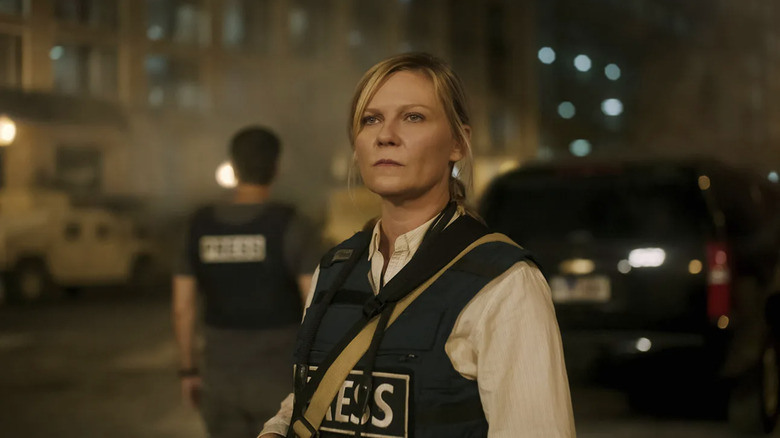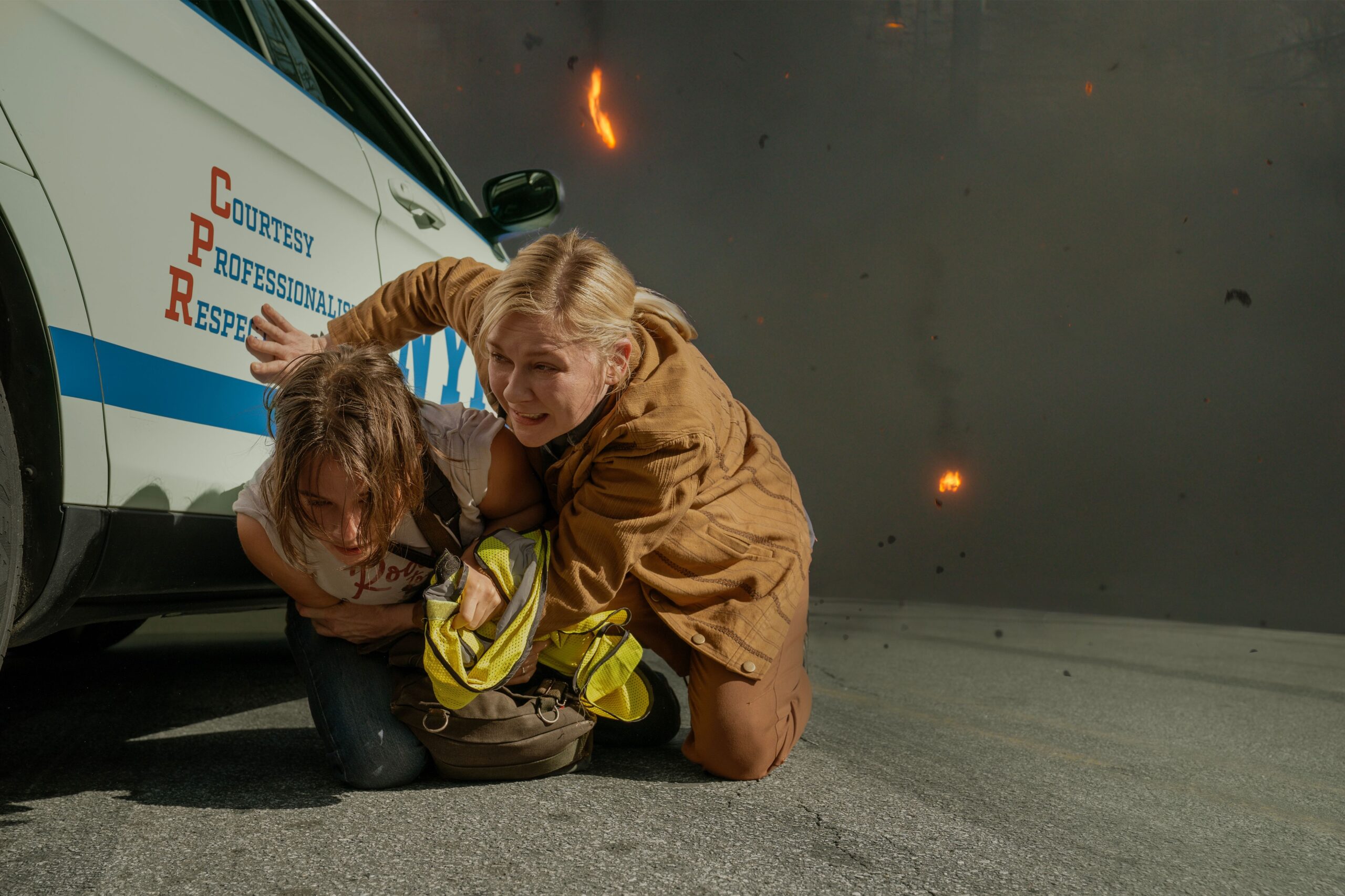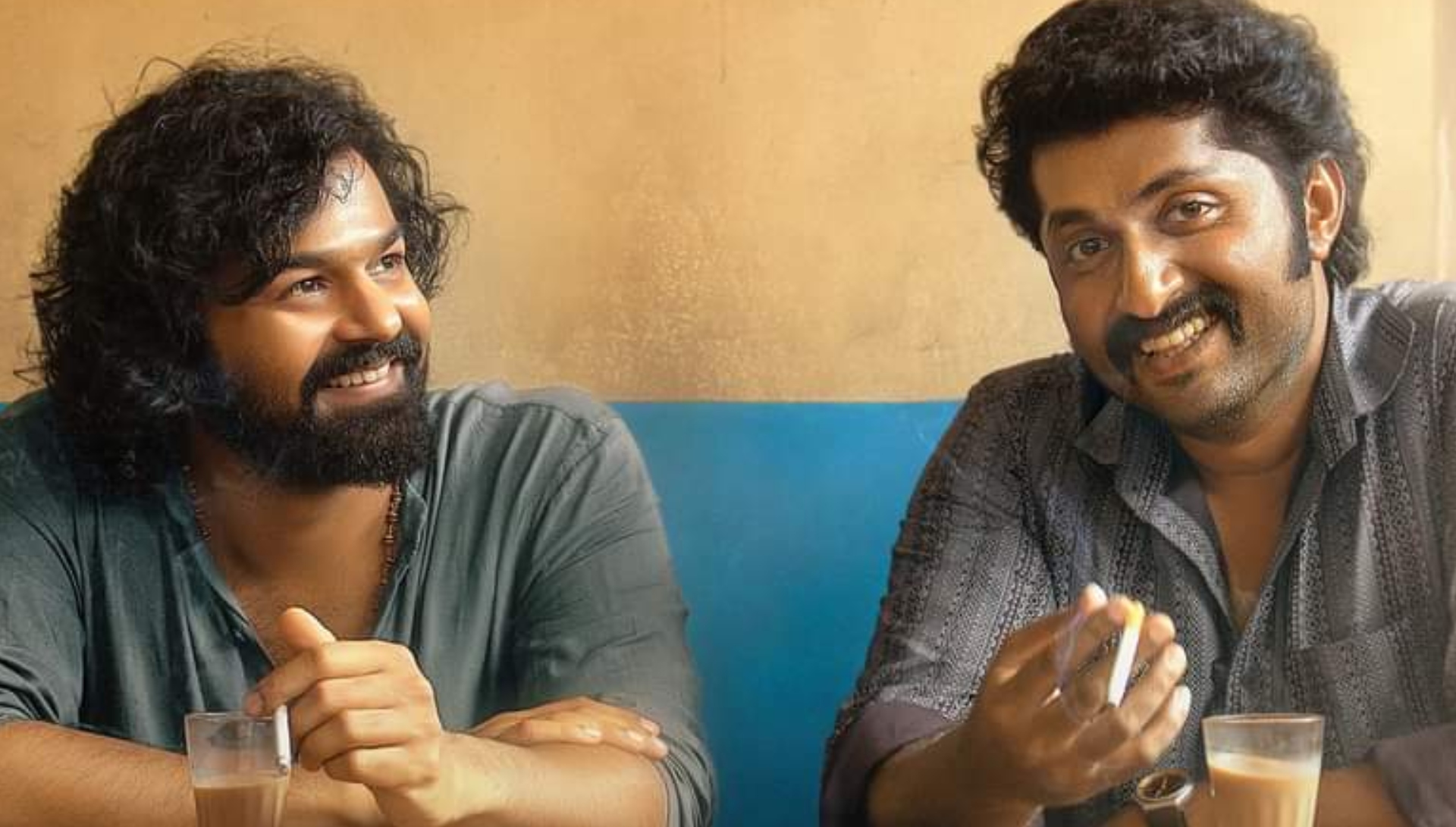Alex Garland belongs to a certain class of filmmakers that fascinates me because, regardless of the more positive or negative opinions about his films, all his narratives have an undeniable impact and are practically impossible not to debate. Personally, I believe that the worst type of movie is one that doesn’t provoke any kind of discussion… those that quickly fade into oblivion. A trait that doesn’t fit into the career of the mind behind Ex Machina, Annihilation, Men, and now, Civil War.
The title of this film couldn’t be more explicit and direct to its premise, set in a future dystopian America in full crisis. Civil War focuses on war journalists and their suicide mission to reach Washington, DC, to interview the President of the United States of America before rebel factions invade the White House. Kirsten Dunst (The Power of the Dog), Wagner Moura (Narcos), Cailee Spaeny (Priscilla), and Stephen McKinley Henderson (Dune) traverse several states of the country, each with its own rules and respective mini-societies, all with the simple goal of surviving the nation-wide chaos.
The simple fact that Civil War is being released at this time and is set in the USA automatically puts the movie in a complicated position that will inevitably lead to a noticeable division within the same country. Unfortunately, I fear that most comments will fall into the trap of discussing issues that the film never intended to address or, worse yet, not understanding at all the point of a movie that, at its core, is about war journalism and the insane, even inhuman, effort that this profession entails. This area of journalism is sustained by neutrality and by the raw, harsh portrayal of the horrible consequences of war. It’s not meant to take political stances or choose sides, but rather to offer resources to us, mere spectators with a frighteningly comfortable, complacent distance from the true horrors, to help us make personal decisions against what often happens on the “other side of the planet.”

Garland understands his main theme and focus perfectly, never falling into the error of stating what is right or wrong, avoiding explaining the origins of Civil War, the reasons for the different factions, or the position of the journalists regarding what’s happening around them. Transmitting a substantial message in a story of this kind would be the “death of the artist”, so I have no doubt that this praise I give the filmmaker will be precisely the biggest problem of the movie for others who will think the exact opposite as if it were impossible for an inherently political film not to have a specific agenda.
“This movie has nothing to say” or “who was this made for?” are some of the most annoying, often ignorant expressions that some film critics usually share after watching movies like Civil War, developing extensive texts on several topics that the film never even mentions, nor ever intended to – a recent example can be found in the reaction to the highly-acclaimed Oppenheimer, whose title seems to be quite self-explanatory about who will be the focus of the narrative, yet there were negative comments about the lack of Japanese perspective when the goal of the biography was neither nor has ever been that. Sadly, it has become a common type of criticism: blasting a movie for not addressing something that never, at any point in its production, was part of the creative and narrative process. Sorry for the little detour, but Civil War is so thought-provoking that it generates debates in multiple areas.
Nevertheless, it’s also extremely intricate in the characterization of its main characters, intertwining the individual arcs in an extraordinarily captivating manner. Garland presents three types of war journalists represented by the same number of characters: Lee Smith (Dunst), a renowned journalist who has lost everything that makes a human being… human, feeling numb to everything that happens around her, focusing solely on capturing the best possible image, no matter how shocking it may be; Joel (Moura), Smith’s colleague who feels truly alive when he’s in the middle of shootings and explosions, clinging to the adrenaline of war and the vices of cigarettes and alcohol to endure the inevitable traumas; and Jessie (Spaeny), a young photographer who wishes to follow in Smith’s footsteps, her personal hero, going through a chillingly transformative arc, shifting from an innocent girl with a charming smile to a person devoid of any humanity with the ‘best’ of Smith and Joel mixed in herself.
Civil War pays homage to these journalists who risk their lives to bring stories to the world that must not be ignored, much less forgotten. Living constantly in a war environment, day after day, having to photograph multiple terrifyingly harrowing moments… is an inhuman task and, therefore, it’s simply natural that people like Smith, Joel, and Jessie succumb to the pressure of the necessary lack of compassion and total complacency with what they witness. The performances contribute to the incredibly tense atmosphere as much as the breathless cinematography of Rob Hardy (Mission: Impossible – Fallout) and the tremendously powerful sound design/mixing. Dunst stands out for her hauntingly subtle aura, Moura has scenes of true delirium, and Spaeny demonstrates, more and more, that she’s one of the most talented actresses of her generation with a performance that goes from 1 to 11 – or rather, from 11 to 1. Jesse Plemons (Killers of the Flower Moon) appears in one of the most brutally shocking, unpredictable sequences of Civil War, while Nick Offerman (The Last of Us) has little screen time.

Hardy’s camera work transports the audience to such an immersive setting that it even contains jump scares more efficiently than many horror flicks. From invasion sequences so engaging that one loses track of time to aerial shots of the destruction caused in all the cities, Civil War is an audiovisual feast with shots so violent that I’m obliged to leave a warning to more sensitive viewers. The score by Ben Salisbury and Geoff Barrow – longtime collaborators of Garland – is the only technical aspect that, personally, raises some problems with certain song choices that bring some quite distracting, tonally inconsistent needle drops.
I’ll finish this review as I started it: whether you enjoy Garland’s style and storytelling or not, his impact on film discourse is undeniable. Civil War is just the latest narrative exercise that will lead to much debate, but the important point to consider is the focus and objective of the movie. War inherently involves politics, but it’s possible to have an opinion on the former that doesn’t have to comply with any agenda or conspiracy, especially when addressing a profession that’s overlooked and undervalued. Garland’s greatest achievement is being able to do what the war journalists he portrays try to do every day by risking their lives: to generate debate and important questions about our behavior as a society.
Civil War attests to Alex Garland’s fascinating ability to create impactful narratives that provoke deep discussions, beyond his unwavering commitment to the themes and characters at hand, without falling into preachy stances. A film that transcends political boundaries, focusing on war journalism, the moral dilemmas faced by those who risk their lives to tell stories that cannot be ignored, and the personal transformation necessary to carry out such an inhuman task. The character complexity and the chilling intensity of the cinematography and sound production contribute to a powerfully engaging, repeatedly shocking audiovisual experience. It’s a tribute to a profession often forgotten, but equally a challenge for viewers to reflect on critical issues in contemporary society.






